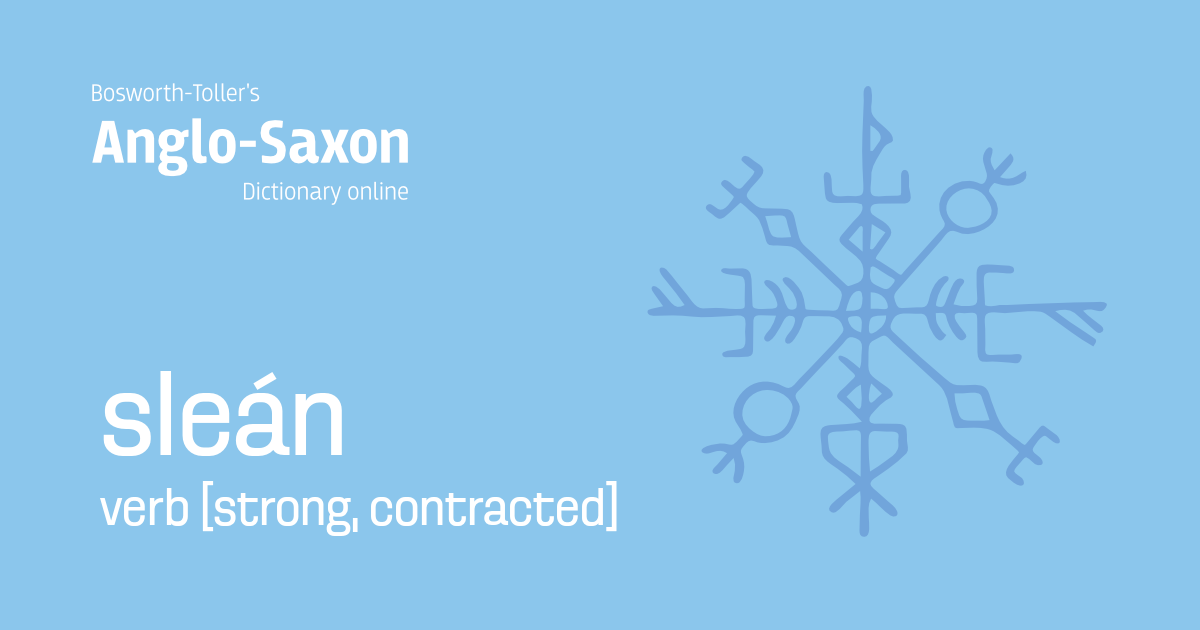It still exists in Italian.I wonder if the dative of reference is easier for a speaker of a Romance language to grasp.
pugio bruti p.L
- Thread starter john abshire
- Start date
B
Bitmap
Guest
The non-English-speaking world calls it dativus commodi.Interestingly, one of my Latin grammars doesn't mention a dative of reference, but gives similar examples under a "dative of interest" which it classes as a type of indirect object.
It also exists in ... English.It still exists in Italian.
In English it can also be called dative of advantage or dative of disadvantage (depending on the context).The non-English-speaking world calls it dativus commodi.
Hmm... Are you thinking of things like "bake me a cake" or "sing me a song"? In any case, where French and, I guess, other Romance languages come closer to Latin is that the construction is commonly used there when body parts are involved: elle lui a cassé le bras, bracchium ei fregit, she broke him the arm, i.e. she broke his arm. Can you put it that way in German too, actually? I know that in German one washes oneself the hands, for instance, just as on se lave les mains in French. That's basically the same construction as in bracchium ei fregit, even though when it comes to washing one's hands in Latin the most usual way to go is without any dative or genitive, just manus lavare.It also exists in ... English.
B
Bitmap
Guest
Yes. The ethical dative is essentially the same phenomenon. English may have cut short in this construction, but it hasn't lost it completely. And it's still productive.Hmm... Are you thinking of things like "bake me a cake" or "sing me a song"?
Yes. It's I have broken me the arm German ... or I have me the arm broken to be more precise.Can you put it that way in German too, actually?
Is it the same if it's someone else's arm as in my Latin and French examples?Yes. It's I have broken me the arm German ... or I have me the arm broken to be more precise.
B
Bitmap
Guest
Yes.Is it the same if it's someone else's arm as in my Latin and French examples?
I have her the arm broken.
I have her in the face slapped. (<-- this one actually exists in English as well, which was my point)
Well, there "her" is a direct object, at least in English.I have her in the face slapped. (<-- this one actually exists in English as well, which was my point)
B
Bitmap
Guest
That's only because you have no way of distinguishing direct and indirect objects by form.Well, there "her" is a direct object, at least in English.
B
Bitmap
Guest
If English had free-range datives, it would be a dative.
B
Bitmap
Guest
That's – as I said – simply because English has no indirect objects without direct ones.
B
Bitmap
Guest
What would it be in Old English.It's accusative in French: je l'ai frappée au visage (not lui).
Accusative.What would it be in Old English.
Gif man óðerne mid fyste in naso slæhþ...
If a man strikes another (acc.) on the nose with his fist...

sleán
sleán, p. slóh, slóg, slógh, pl. slógon; pp. slagen, slægen, slegen. <b>A.</b> trans. I.
B
Bitmap
Guest
I don't doubt that it's a direct object in Modern English. I was questioning whether it was one historically. But if OE treated it with the accusative, I suppose it is.I'm not sure I follow you reasoning here. "Her" is clearly the direct object in "I slapped her".
Is folgian constructed with the accusative or with the dative?
Do you say "Je l'ai persuadé" in French or "Je lui ai persuadé"?
I didn't get that. It looked to me as if you were arguing that it was still a dative of disadvantage/reference.I don't doubt that it's a direct object in Modern English. I was questioning whether it was one historically.
I don't know if Old English has any verb meaning "slap" that takes the dative. The verb "slap" itself is later.
It can take either.Is folgian constructed with the accusative or with the dative?
The former.Do you say "Je l'ai persuadé" in French or "Je lui ai persuadé"?
B
Bitmap
Guest
It can take either.
The former.

That's what I mean. It takes a direct object now but was probably constructed with an indirect object originally.
How do you say ei bracchium fregit in OE?I didn't get that. It looked to me as if you were arguing that it was still a dative of advantage/reference.
I don't know if Old English has any verb meaning "slap" that takes the dative. The verb "slap" itself is much later, and has probably always taken a direct object.
It could already take the accusative in Old English (both constructions are found, as I said) but I agree the construction with the dative is probably earlier.That's what I mean. It takes a direct object now but was probably constructed with an indirect object originally.
I would never deny that some verbs that originally took the dative later changed to take the accusative, but the issue seems only tangentially related to the original discussion.
I don't remember if the construction with the dative exists there, but it could be.How do you say ei bracchium fregit in OE?
B
Bitmap
Guest
It was only relevant for my claim that Modern English doesn't have indirect objects in the absence of a direct one, anymore, while OE still did.but the issue seems only tangentially related to the original discussion.
The change of accusative to dative when a prepositional object comes into play seems to be something restricted to German :/ Or to High German even.
